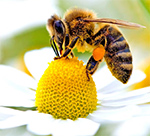Introduction to Beekeeping
Beekeeping, also known as apiculture, is a rewarding and fascinating hobby that has been practiced for centuries. It involves the maintenance of bee colonies, primarily honeybees, for the purpose of harvesting honey, beeswax, and other bee-related products. Beyond the sweet rewards, beekeeping also plays a vital role in pollination and supporting biodiversity. In this comprehensive guide, we will explore the world of beekeeping, its benefits, and the basics of getting started.
Why Beekeeping?
Beekeeping has gained popularity in recent years due to its numerous benefits, both for the environment and for those who undertake it as a hobby or profession. Here are a few reasons why people choose to become beekeepers:
- Honey Production
 One of the primary reasons people keep bees is to harvest honey. Honey is a natural sweetener with numerous health benefits and has been enjoyed by humans for thousands of years. The process of collecting honey from your own hive is a truly rewarding experience.
One of the primary reasons people keep bees is to harvest honey. Honey is a natural sweetener with numerous health benefits and has been enjoyed by humans for thousands of years. The process of collecting honey from your own hive is a truly rewarding experience.
- Beeswax
 Beeswax, produced by bees to build their honeycomb, has a wide range of uses. It is used in cosmetics, candles, and even as a natural wood polish. Many beekeepers find that beeswax is a valuable byproduct of their beekeeping endeavors. Due to its properties, bee wax has been traded since ancient times. This versatile product is used in many industries in modern times and still holds a lot of value.
Beeswax, produced by bees to build their honeycomb, has a wide range of uses. It is used in cosmetics, candles, and even as a natural wood polish. Many beekeepers find that beeswax is a valuable byproduct of their beekeeping endeavors. Due to its properties, bee wax has been traded since ancient times. This versatile product is used in many industries in modern times and still holds a lot of value.
- Pollination

- Educational Opportunity
Beekeeping is a continuous learning experience. It allows individuals to connect with nature, understand the complexities of bee colonies, and appreciate the importance of bees in our environment. It’s a hobby that provides endless opportunities for growth and understanding.
- Connection with Nature
Beekeeping provides a sense of connection with the natural world. It offers a peaceful and meditative experience, allowing beekeepers to escape the hustle and bustle of modern life. The simple act of observing bees at work can be incredibly soothing.
The Basics of Beekeeping
Before diving into beekeeping, there are some essential aspects you should understand:
- Beehive
The beehive is the central structure of a bee colony. It consists of wooden boxes that house the bees and their comb. Beekeepers must choose between different hive styles, with the Langstroth hive being one of the most popular. The hive serves as the bees’ home and workspace.
- Beekeeping Equipment
To handle bees safely, you’ll need protective gear such as a beekeeping suit, gloves, and a veil. You’ll also require tools like a smoker to calm the bees, a hive tool to open the hives, and a bee brush to gently remove bees from the frames. Proper equipment ensures your safety and the well-being of the bees.
- Colony Maintenance
Regular inspections are crucial to ensure the health and productivity of the colony. Monitoring for diseases and parasites, as well as checking food stores, is essential. Being attuned to your colony’s needs is a fundamental part of successful beekeeping.
- Beekeeping Seasons
Beekeeping is a seasonal activity. Spring and summer are the primary seasons for beekeeping, as this is when bees are most active, and honey is typically harvested. Winter requires additional care to ensure the survival of the colony. Understanding the seasonal changes and their impact on your bees is vital.
- Beekeeping Laws
Be sure to check local regulations and laws regarding beekeeping in your area. Some places have restrictions on hive placement and may require registration. Compliance with local regulations is crucial to ensure that your beekeeping activities are lawful and safe.
Getting Started
If you’re interested in starting beekeeping, here are some initial steps to consider:
- Education
Invest time in learning about beekeeping. There are many books, online courses, and local beekeeping associations that can provide valuable information and support. Building a strong knowledge base is the foundation of your success as a beekeeper.
- Equipment
Acquire the necessary equipment and protective gear. Ensure you have everything you need to properly care for your bees. Quality equipment is an investment that will pay off in the long run.
- Select a Hive Location
Choose a suitable location for your beehive. It should be sheltered from strong winds, receive adequate sunlight, and have a water source nearby. The hive’s location significantly influences your bees’ health and productivity.
- Obtain Bees
You can purchase bees from a local beekeeper or order a package of bees. There are different types of bees, with the European honeybee being the most common for beekeeping. The type of bees you choose should align with your goals as a beekeeper.
- Start Small
It’s advisable to start with one hive and gradually expand as you gain experience. Managing one colony effectively allows you to learn and adapt without overwhelming yourself. As you become more proficient, you can consider expanding your beekeeping operation.
- Join a Beekeeping Community
Connecting with other beekeepers can be incredibly helpful. Local beekeeping associations or online forums are great places to find support and advice. You can learn from experienced beekeepers, share your experiences, and stay updated on the latest beekeeping trends and techniques.
The Rewards of Beekeeping
Beekeeping can be a truly rewarding and environmentally beneficial endeavor. As you embark on this journey, remember that it’s not just about the honey; it’s also about fostering a connection with nature, supporting pollinators, and becoming a steward of these remarkable insects. Beekeeping allows you to dive into the fascinating world of bees and, in the process, become a vital guardian of our ecosystems.
Challenges in Beekeeping
While beekeeping offers numerous rewards, it’s essential to be aware of the challenges that beekeepers may face. Here are some common issues and how to address them:
- Hive Health
Maintaining the health of your bee colony is paramount. Bees can be susceptible to diseases and parasites, such as Varroa mites and Nosema. Regular inspections, proper treatment, and good hygiene practices are essential for hive health.
- Swarming
Bees have a natural tendency to swarm when their colony becomes overcrowded. While swarming is a natural reproductive process for bees, it can lead to a reduction in the size of your colony. To manage swarming, beekeepers can use various techniques, such as splitting the hive or requeening.
- Pest Management
Pests like wax moths and hive beetles can infiltrate your hive and wreak havoc. Implement integrated pest management (IPM) strategies to minimize the impact of these pests. IPM focuses on prevention and non-chemical control methods whenever possible.
- Weather and Seasonal Challenges
Extreme weather conditions can be a challenge for beekeepers. Harsh winters or prolonged periods of rain can affect a hive’s survival. Proper insulation and preparation for adverse weather conditions are crucial.
- Environmental Stressors
Pesticides, habitat loss, and the proliferation of monoculture farming can pose significant challenges to bees’ foraging and overall health. Beekeepers can play a role in advocating for sustainable and bee-friendly practices in their communities.
Advanced Beekeeping Techniques
As you gain experience in beekeeping, you may want to explore advanced techniques and practices. Here are some areas to consider:
- Queen Rearing
Raising your own queen bees allows you to have greater control over your colony’s genetics. This can be a fascinating aspect of beekeeping, but it requires a deeper understanding of bee biology.
- Honey Harvesting
Mastering the art of honey extraction and processing can result in higher-quality honey and greater yields. Explore various methods and equipment to improve your honey harvesting process.
- Hive Products
In addition to honey and beeswax, beekeepers can explore other hive products, such as royal jelly and propolis. These products have unique qualities and potential health benefits.
- Pollinator Conservation
Consider planting bee-friendly plants and advocating for pollinator-friendly practices in your community. Becoming an active pollinator advocate can contribute to the well-being of all bee species.
- Sustainable Beekeeping
Explore sustainable beekeeping practices, such as natural comb building, chemical-free hive management, and regenerative beekeeping. These approaches can enhance the long-term health of your bees and the environment.
There is a really good video introduction to beekeeping made by David Burns. You can watch it from <<here>>
Conclusion
Beekeeping is a multifaceted and deeply satisfying hobby that allows you to connect with nature, support the environment, and enjoy the sweet rewards of honey and beeswax. While it may seem intimidating at first, with the right knowledge and dedication, anyone can become a successful beekeeper. Start small, learn from experienced beekeepers, and be attentive to your bees’ needs. As you gain experience, you’ll find that beekeeping is not just a hobby; it’s a way to become a vital guardian of our ecosystems and a steward of these remarkable insects. Happy beekeeping!
